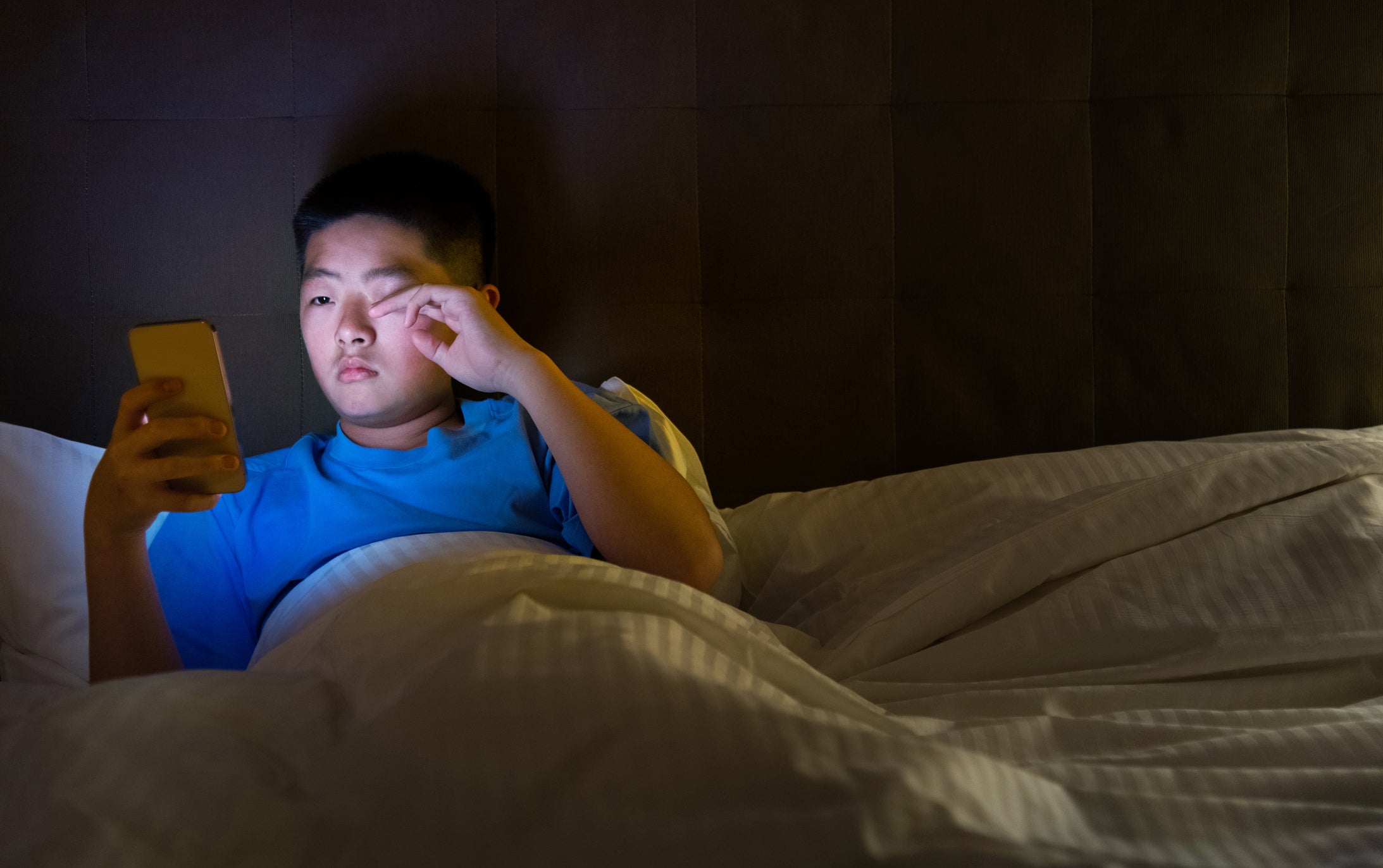
Young people who go to bed earlier and sleep for longer than their peers tend to have better brain function and perform better at cognitive tests, according to researchers from the UK and China.
A study of more than 3,000 adolescents found that those who got an early night, slept longer and had the lowest sleeping heart rates would outperform others on reading, vocabulary, problem solving and other mental tests.
Professor Barbara Sahakian, from the Department of Psychiatry at the University of Cambridge, said: “Regularly getting a good night’s sleep is important in helping us function properly, but while we know a lot about sleep in adulthood and later life, we know surprisingly little about sleep in adolescence, even though this is a crucial time in our development.
“How long do young people sleep for, for example, and what impact does this have on their brain function and cognitive performance?”

While it has long been understood that sleep plays an important role in helping bodies function, researchers were surprised by the impact of even the smallest differences in sleep.
Professor Sahakian added: “Even though the differences in the amount of sleep that each group got was relatively small, at just over a quarter-of-an-hour between the best and worst sleepers, we could still see differences in brain structure and activity and in how well they did at tasks. This drives home to us just how important it is to have a good night’s sleep at this important time in life.”
Typically, studies looking at how young people sleep have relied on self-reporting, which can be inaccurate. Researchers at Fudan University, Shanghai, and the University of Cambridge turned to data from the Adolescent Brain Cognitive Development (ABCD) Study, the largest long-term study of brain development and child health in the United States.
As part of this study, researchers gave young people Fitbits to gather objective data on their sleep patterns and compare it against brain scans and results from cognitive tests.
They found the adolescents could be divided into one of three groups. Group one, accounting for 39 per cent of participants, slept an average of seven hours and 10 minutes. They tended to sleep the latest and wake the earliest. Group two, accounting for 24 per cent, slept an average of seven hours and 21 minutes, with average levels across all sleep characteristics.
Meanwhile, group three, accounting for 37 per cent, slept an average of seven hours and 25 minutes. They went to bed and fell asleep the earliest, and had lower heart rates during sleep.
Researchers found no significant differences in the school achievements between these groups, but group three outperformed the other two when it came to cognitive tests looking at vocabulary, reading, problem solving and focus. They also had the largest brain volume and best brain functions, while group one had the smallest volume and poorest brain functions.
First author Dr Qing Ma from Fudan University said: “Although our study can’t answer conclusively whether young people have better brain function and perform better at tests because they sleep better, there are a number of studies that would support this idea.
“For example, research has shown the benefits of sleep on memory, especially on memory consolidation, which is important for learning.”
The American Academy of Sleep Medicine says that the ideal amount of sleep during adolescence is between eight and 10 hours.
Youngsters who sleep longer may perform better in tests, study suggests
Incels should have ‘dating coaching’ to help them form relationships: expert
Barking at women, blocking doors: Andrew Tate’s chilling influence on male students
Government Bill to block new sentencing guidelines clears first Commons test
Police worker charged with trying to arrange sexual activity with child under 13
Starmer backtracks on ‘trans women are women’ comment following court ruling







